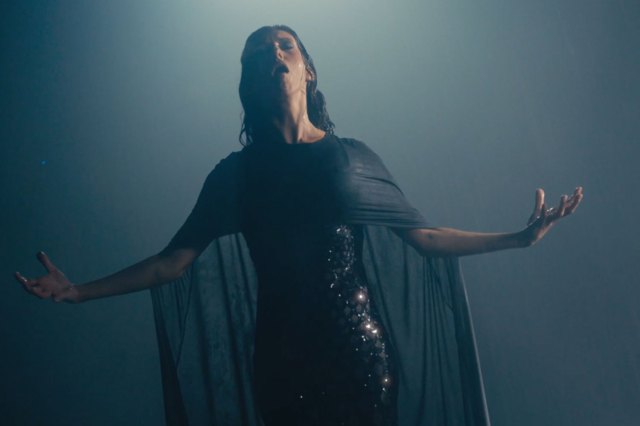The Estate at the National Theatre – review
The new political drama is the first play programmed in the refurbished Dorfman space

Due to a scheduling quirk, the National Theatre’s smallest space, the Dorfman, continues with the last embers of former venue director Rufus Norris’ programming. One glowing offering, now reopening the refurbished space, is Shaan Sahota’s taut drama The Estate – which is, remarkably, her debut play.
Remarkable in that it paints a multi-faceted, bracing and yet hilarious portrait of personal and political anguish. We follow opposition MP Angad Singh, who unexpectedly makes a play for the top job after his leader’s resignation due to an extramarital affair (“at least she was 18”, one darkly humourous line posits). As his campaign starts to gain momentum – wham – his older sister enters with devastating news: the sudden death of an iron-fisted father, the rock, and the hard place, of Singh’s life. An extra sucker-punch: a highly divisive will that picks at half-healed wounds between youngest sibling Singh and his two sisters.
If the first half feels like an ode to Armando Iannucci with its nods to political scheming, different Oxford colleges, overbearing whips, soggy biscuits and quirky fetishes, then act two has no fear treading into murkier, more harrowing waters: by the end, providing a genuinely quite shocking and disturbing altercation. The realities of decades of parental pressure are exposed in horrifying detail.
It’s a messy, at times overwhelming rollercoaster of a final half hour (I’d not be against Sahota adding a further ten minutes or so to the 140-minute runtime), while some superfluous dialogue does clog up the more high-temperature verbal sparring.
At the heart of it all is Adeel Akhtar, giving a brilliant sleight-of-hand performance. At the start of the show, put-upon and beleaguered, he feels like some socially awkward school prefect, entering the noble halls of Westminster to try and make a genuine difference. Like Atlas, weighed down by the overwhelming mass of constitutional concerns, he leans, crouches, staggers almost. By the close, a toxically masculine metamorphosis has taken place (the irony of all of this happening while Singh’s “change” slogan is projected onto the back wall) and Akthar breathes genuine menace into Singh.
With so few plays exploring the Anglo-Indian experience, Sahota’s themes, ideas and debates are refreshingly original – pitted against a familiar backdrop of party politic scheming. While wrestling the two separate strands of Singh’s life, director Daniel Raggett keeps it all moving at a rocking speed – blasting through lengthier family arguments with metronome-paced efficiency. A few bombastic scene changes seem to insist on themselves slightly too much – all unexpected techno and audio blast – but other than that, the design elements coalesce nicely: Chloe Lamford’s versatile end-on space pivots breezily from Commons office to sterile domestic home and ornate London gurdwara.
There are some stellar supporting performances from Shelley Conn and Thusitha Jayasundera, while Dinita Gohil makes more of Singh’s wife Sangeeta than is likely on the page – as an audience member, you yearn to get a few more ironclad details about her own past slightly earlier in the story. On the other side of the coin are Humphrey Ker, Fode Simbo and Helena Wilson as the political engineers trying to roar the Singh operation into life – delivering laughs by the gallon.
It’s uneven, yet relentlessly arresting. Sahota must be commended for her ambition here – the landing may not be perfect, but the sequence of flourishes certainly wows.
















